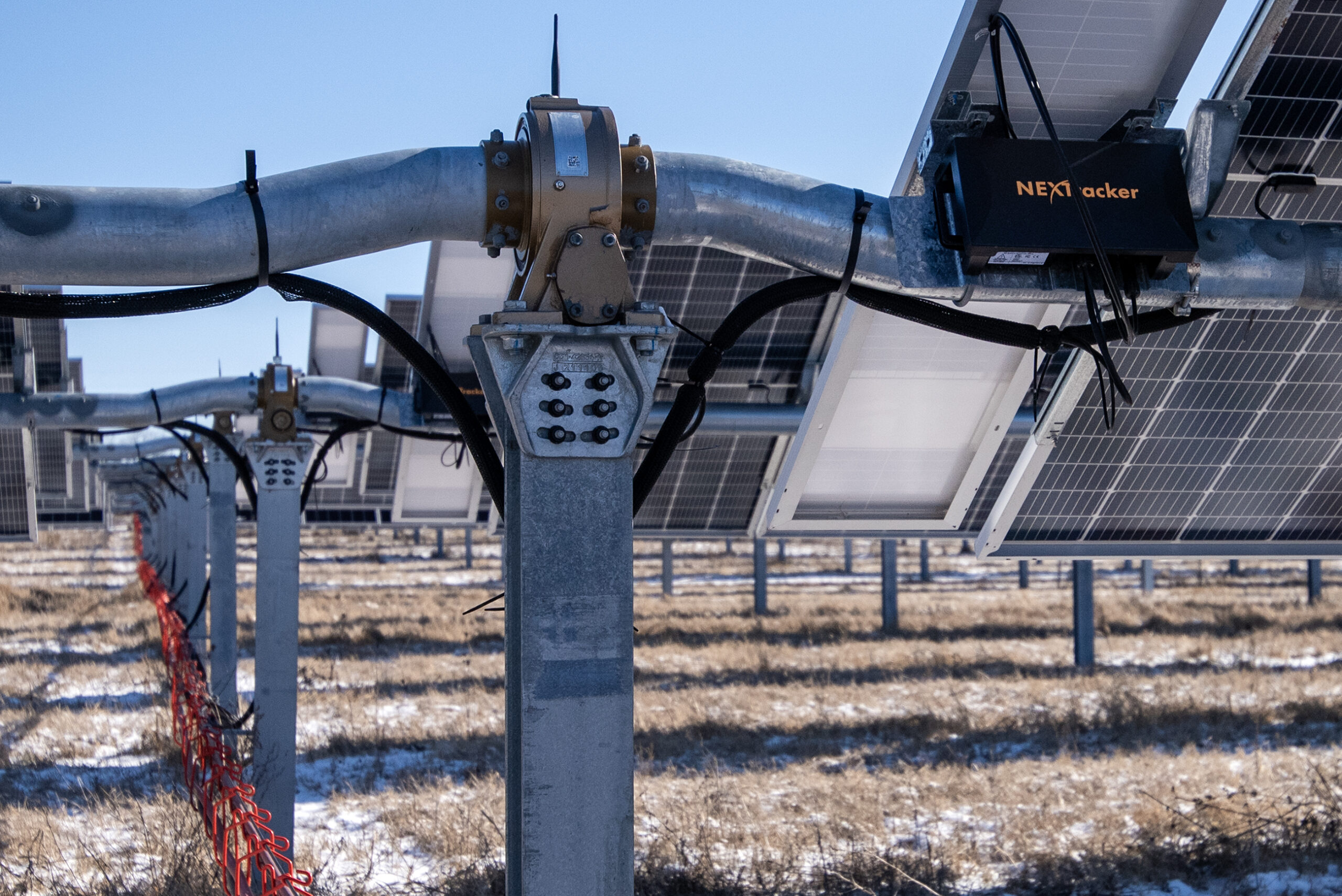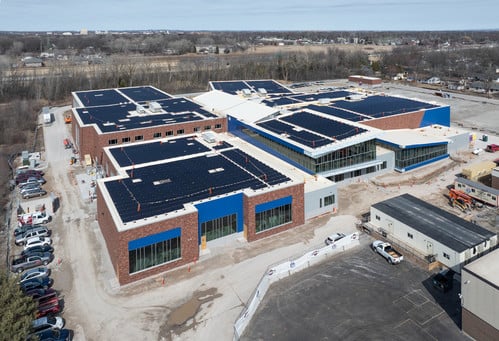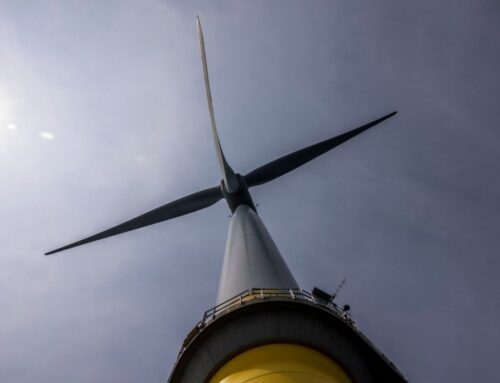Wisconsin labor groups push back as Biden-era climate law’s hefty price tag makes it a tar
May 19, 2025
Wisconsin labor and clean energy advocates say a Republican plan in Congress to end or phase-out Biden-era clean energy tax credits could jeopardize thousands of jobs and force some companies to abandon projects.
The House Ways and Means Committee recently released an amendment to Congress’ budget reconciliation package that would rollback tax credits included in the Inflation Reduction Act. The move is part of a large package of tax cuts and program reductions promoted by the Trump administration.
Last week, labor groups and the liberal nonprofit Forward Together held an event to highlight the potential for job loss if the the funding is canceled, saying the cancellation of tax incentives would endanger ongoing projects in Wisconsin.
This field is for validation purposes and should be left unchanged.
The IRA was signed into law by former President Joe Biden in 2022. It included provisions to address climate change through incentives for the clean energy through extended and expanded tax credits.
Companies have announced plans to invest more than $840 billion in clean energy projects in the United States since the IRA was passed, but only $321 billion of that private investment had been spent through the first quarter of 2025. That’s according to a report released Tuesday from Clean Investment Monitor, a joint effort between Massachusetts Institute of Technology and Rhodium Group, a New York-based policy research company.
In Wisconsin, roughly $5.3 billion in total private investment had been announced with more than $2.9 billion spent since the IRA became law, according to a spreadsheet from Clean Investment Monitor.
There were 407 operational jobs and 4,109 construction jobs associated with completed facilities in Wisconsin, and another 175 operational and 2,511 construction jobs expected for announced facilities not yet online, according to the spreadsheet.
“Our members of Congress should be defending and fighting for these jobs and investments in their districts, not threatening them,” said Peter Drummond, executive director of Forward Together Wisconsin.

Electrical workers union leaders from Madison and Greenfield, as well as the Wisconsin Building Trades Council, said Wednesday the climate law led to a boom in clean energy deployment across the state.
They said the plan to gut the IRA’s incentives could result in job losses, creating economic instability for families across Wisconsin.
“This wouldn’t just be canceling clean energy projects,” said Emily Pritzkow, executive director of the Wisconsin Building Trades Council. “They’d be canceling opportunities for thousands of our members and undermining Wisconsin’s energy independence.”
But a March 2025 policy analysis from libertarian Cato Institute think tank estimates the energy subsidies in the Inflation Reduction Act will cost between $936 billion and $2 trillion over the next decade, and between $2 trillion and $4.7 trillion by 2050.
“The IRA’s energy subsidies are multiple times larger than initial estimates, and they expose American taxpayers to potentially unlimited liability,” the report states.
The Republican proposal seeks to terminate or phase out a host of federal tax credits for things like electric vehicles, charging stations, residential clean energy or energy efficiency upgrades, utility-scale clean energy and renewable energy manufacturing, according to a preliminary analysis of the proposal by Rhodium Group.
“The impact of the proposal is likely to be similar to the impact of a full repeal of the energy tax credits initially extended and expanded in 2022,” the analysis states.
The GOP budget reconciliation bill was blocked from advancing to the House floor Friday by hardline House Republicans on the House Budget Committee. According to the New York Times, conservatives wanted deeper spending cuts and were unhappy the legislation did not immediately eliminate clean energy tax credits.
One project in Wisconsin expected to benefit from the Inflation Reduction Act is the construction of a new intermediate and middle school in Menasha, after the law allowed nonprofit and local governments to receive direct payments instead of tax credits.

Brian Adesso, director of Business Services for the Menasha Joint School District, said the district expects to receive a reimbursement of nearly $4 million for a rooftop solar, energy storage and geothermal system that are included in the project.
“Without the availability of these credits, we would not have had the certainty we needed to make these projects come to life,” he said. “That would be a huge loss for our district and our community.”
While advocates decry the effort to repeal some of the IRA’s incentives, federal Republicans have been critical of the law almost since its passage. Since 2023, they’ve argued that the law failed to reduce inflation.
In a statement, U.S. Rep. Tony Wied, R-De Pere, defended the House GOP’s budget plan, saying it provides tax relief to working-class families.
“We’re committed to reversing the costly Green New Scam policies of the Biden Administration, which led to massive inflation and made life unaffordable for Wisconsinites,” he stated. “While Republicans are focused on lowering costs and supporting the working-class, Democrats continue to push for devastating tax hikes that will hurt everyday Wisconsin families.”
Ending the clean energy tax credits could face challenges in the U.S. Senate, where moderate Republicans have said the proposal needs changes to earn their support, according to Politico.
Wisconsin Public Radio, © Copyright 2025, Board of Regents of the University of Wisconsin System and Wisconsin Educational Communications Board.
Search
RECENT PRESS RELEASES
Related Post



